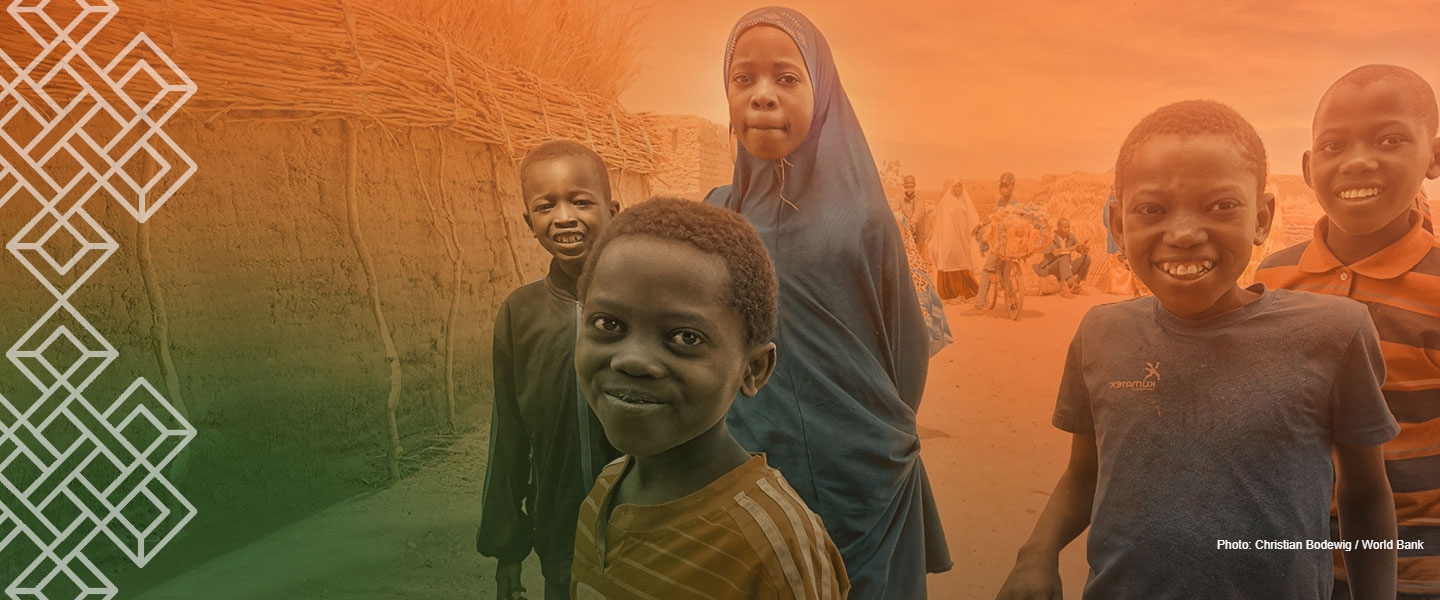
What is Adaptive Social Protection?
Adaptive social protection is a critical tool to support national Governments in developing systems to help poor and vulnerable households and communities better cope and become more resilient to climate change and other covariate shocks. The adaptive approach integrates social protection interventions with disaster risk management and climate change adaptation measures to better anticipate and respond to shocks.
Drawing on climate early warning systems backed by disaster risk financing strategies, countries can anticipate climate-related events such as droughts, and quickly scale up cash transfers via their social safety net programs, providing an overall cost-effective response to increasing needs. Adaptive social protection interventions also have the potential to improve social cohesion and reinforce relationships within and between communities as well as state presence.
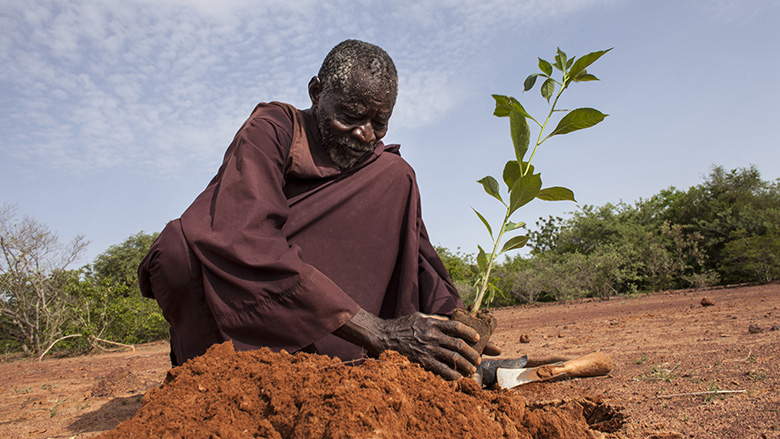
Building Resilience in the Sahel – through Adaptive Social Protection
The Sahel – the vast semi-arid region of Africa separating the Sahara Desert to the north and tropical savannas to the south – is home to some of the poorest countries in the world and is highly affected by climate change.
Sahel Adaptive Social Protection Program (SASPP) is a multi-donor trust fund managed by the World Bank that supports the strengthening of adaptive social protection systems in the Sahel to enhance the resilience of poor and vulnerable populations to the impacts of climate change.
The SASPP focuses on both regional and country-level activities. The majority of SASPP financing is disbursed in the form of direct grants to governments for piloting innovative adaptive social protection programs. The remaining resources managed by the World Bank are used for technical assistance efforts in each country and for creating and disseminating knowledge and good practice lessons across the region.
The regional themes span five areas:
- Poverty, Vulnerability, and Resilience
- Climate-Shock Responsive Delivery Systems
- Productive Inclusion and Women’s Empowerment
- Fragility and Forced Displacement
- ASP and Human Capital
At the country level, activities support countries to strengthen their adaptive social protection systems across the four “building blocks” of ASP:
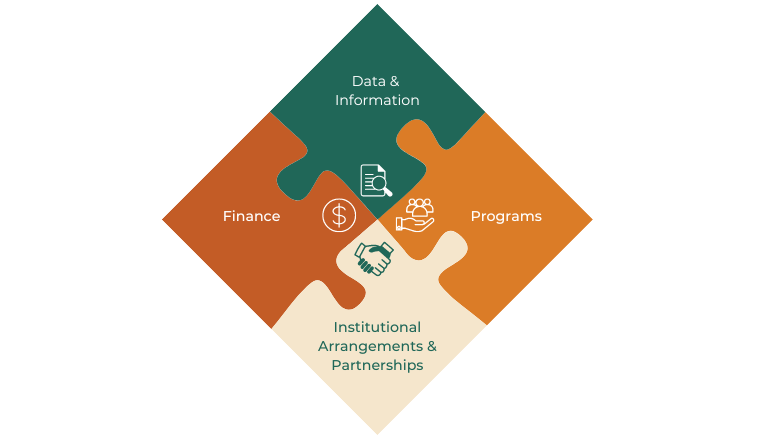
To this end, SASSP provides technical assistance, capacity building, and finances pilot interventions. Check out this new animation video by SASPP to explore how Adaptive Social Protection works in the Sahel.
Examples of SASPP Activities
Chad Refugees and Host Communities Support Project (PARCA)
Current SASPP activities in Chad are anchored within the PARCA, whose objective is to increase refugee and host community access to basic services, livelihoods, and safety nets. The Project also aims to expand safety net coverage through targeted cash transfers and productive inclusion activities to nearly 140,000 households, and to improve access to essential social services by rehabilitating existing structures or building new ones for almost 800,000 community members. The project is also focused on improving the social protection delivery system, including through the piloting of digital payments in the capital city and the development of a unified social registry, whose decree requires its use by government and humanitarian partners in their beneficiary identification processes.
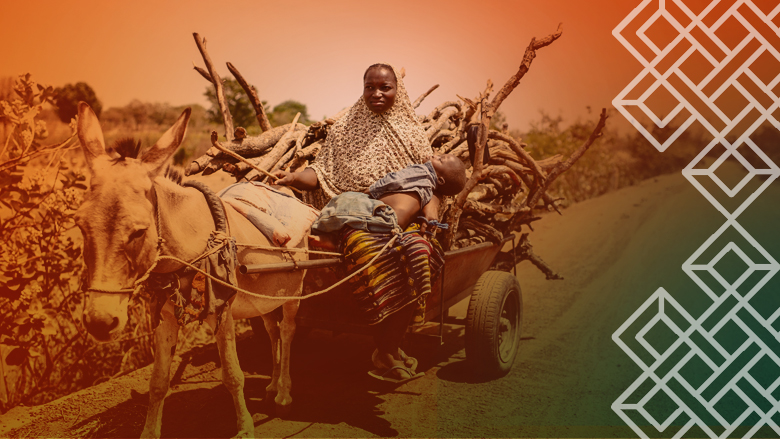
Niger Adaptive Safety Net Project 2
SASPP's current activities are anchored in the Niger Adaptive Safety Net Project 2, which aims to improve the capacity of the Niger adaptive safety nets system to respond to shocks and to provide access for poor and vulnerable people to safety nets and accompanying measures. It provides regular support to around 120,000 impoverished and vulnerable households (including 30,000 affected by COVID-19 shock), most of them also receiving human capital building measures. Around 50,000 households are expected to benefit from productive inclusion measures and around 66,000 from cash-for-work measures.
SASPP has also supported Burkina Faso, Mali, Mauritania, and Senegal in building adaptive social protection systems.
Impacts of Adaptive Social Protection in the Sahel
Adaptive social protection in the Sahel proves to be a profitable investment, reducing poverty, enhancing food security, and bolstering resilience against climate change and shocks, along with significant broader impacts on the economy, society, and future generations. The remarkable impacts of Adaptive Social Protection (ASP) in the Sahel are shown in this new infographic:
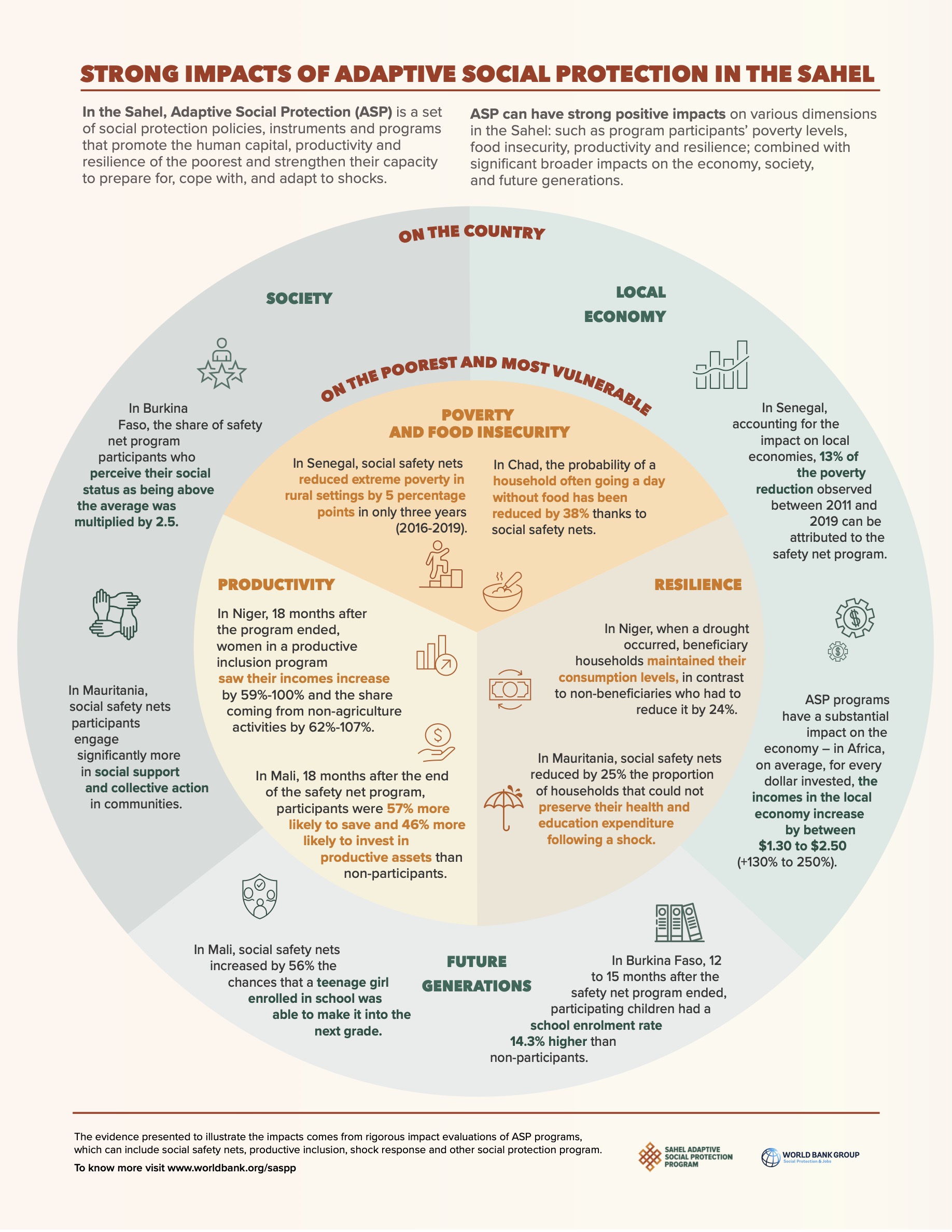
To learn more about Sahel Adaptive Social Protection Program, please visit: https://www.worldbank.org/en/programs/sahel-adaptive-social-protection-program-trust-fund
Source: World Bank
 Welcome to the United Nations
Welcome to the United Nations